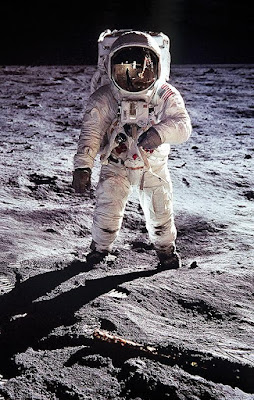For weeks, I believed that electing Jeremy Corbyn Labour leader would damage the party’s electoral chances. His views on a wide range of issues seemed out of tune with far too many voters, and his image generally seemed too eccentric, for him to be electable Prime Minister.
It didn’t particularly help that, when taxed with this charge on TV, he replied that he clearly wasn’t unelectable since he’d been returned to Parliament again and again, by the electors of Islington, over 32 years. It’s not that the answer wasn’t well delivered – it was a refreshing change from the speak-by-numbers evasions most politicians seem to produce. But the implication was that he thought England was all like Islington and, while it might be a good thing if more of England resembled that fine London Borough, for the moment it certainly doesn’t.
However, later I heard him replying to the same question again. This time he told the BBC that we ought to wait and see, that the Conservatives were in for a torrid time with economic difficulties ahead, and they might not find re-election as easy as some think. Now that struck me as a highly intelligent response. I’ve also felt the same for a while: the Tories have had an easy ride of it, but haven’t done well (far from reducing debt, it they have nearly doubled it since they came to office). They could be put through the wringer in the coming years.
More generally, Corbyn had avoided saying any of the things I feared he might to frighten the children. He dislikes NATO, but he accepts that many people disagree and he believes Labour is a broad grouping within which compromises have to be made – it sounded to me as though there might be a debate about NATO, which is long overdue, not a commitment to leave, which might be perceived as rash.
 |
| Time, I felt, to change my mind |
Some of his views on nationalisation seem to strike a chord with the electorate, rather than putting them off.
I’m far from certain about his notion of “people’s quantitative easing”, i.e. printing money to fund investment: that’s never worked well in other countries when it’s been tried – the hyperinflation to which it leads leaves little of the benefits it’s designed to generate – but it feels to me as though he can be persuaded to take a more dependable approach. Borrowing to invest, as opposed to the Tories’ borrowing to fund day-to-day expenditure, strikes me as a far more sensible policy, especially when interest rates are at a historic low.
More broadly, when it comes to economics, my feeling that he wasn’t the candidate to vote for was shaken when I saw that 41 economists had endorsed his anti-austerity stance, especially as one of them was the outstanding David Blanchflower.
I’d looked with envy to Scotland during the General Election campaign earlier this year, wishing that we too in England had a leader who spoke out against austerity policies as effectively as Nicola Sturgeon of the Scottish Nationalist Party – the runaway victors of the election, north of the border. Austerity has caused enormous pain among sections of the population least able to suffer it, and failed dismally in its objectives, as the constantly rising debt shows. It suddenly occurred to me that Jeremy Corbyn might be just our answer to Sturgeon.
In any case, I’m reminded of the advice of someone who was one of the most remarkable statesmen ever, while still being a supremely astute political operator, Abraham Lincoln:
The true rule, in determining to embrace, or reject any thing, is not whether it have any evil in it; but whether it have more of evil, than of good. There are few things wholly evil, or wholly good. Almost every thing, especially of governmental policy, is an inseparable compound of the two; so that our best judgment of the preponderance between them is continually demanded.
I can’t expect to agree with Corbyn on everything; I just have to decide whether on balance he has more in his favour than against him. And both in his policies, in which he has proved himself surprisingly moderate and open to compromise, and in his dealings with the media, where he has proved himself honest and straightforward, I’ve been impressed by his performance.
By contrast, the other candidates, though some are effective, still look too much like the products of a spin-dominated machine. Nor do they speak out against austerity as we need them to. It’s now beginning to feel to me as though they simply can’t mobilise the support we’re looking for, reversing my earlier notion about Corbyn: I now suspect that he may be better placed to inspire people, gaining more support than he puts off, and therefore help Labour advance.
Besides, Tony Blair came to my rescue, stilling any doubts I might have had. He writes in the Observer of the effect on supporters of any piece penned against Corbyn, that it “actually makes them more likely to support him.” And then he writes another one against him.
Well, if even Blair is now contributing to the Corbyn campaign, what could possibly stop me?
So he got my vote.





















